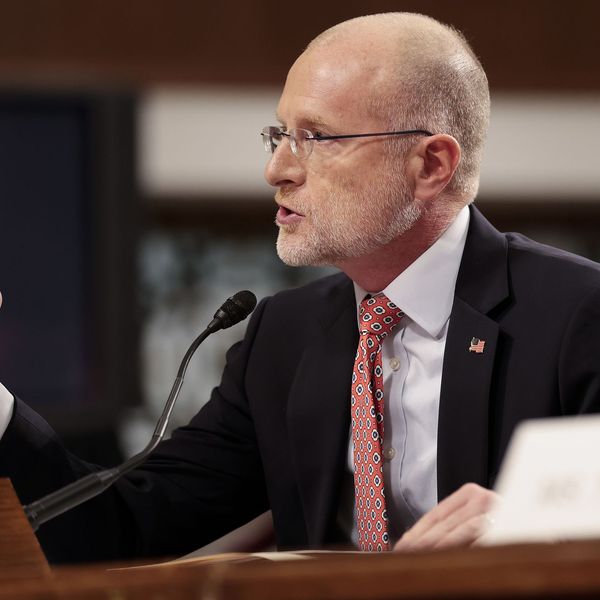Following an announcement by the Federal Communications Commission that it will issue new rules in the coming months to protect an
open internet, communications advocates are crying foul, saying the FCC's promises are largely toothless and the agency has the power to do far more.
The FCC announcement follows a ruling in a federal court last month in favor of broadband companies who said Net Neutrality rules enforced by the FCC are illegal. The ruling was slammed by internet advocates who said it "gives commercial companies the astounding legal authority to block internet traffic, give preferential treatment to certain internet services or applications, and steer users to or away from certain web sites based on their own commercial interests."
In response, one month later, the FCC has said that it will not appeal the ruling, but will in exchange use powers under the Telecommunications Act to propose new rules that would theoretically continue to protect internet users and providers from being overcharged and abused by broadband companies.
The promises, however, are toothless, according to Candace Clement at the internet advocacy and press freedom group Free Press.
"Give the statement a speed-read and you might think the agency is moving in the right direction. There are some great buzzwords in there," she writes. "But all this announcement does is kick the can down the road -- the wrong road."
The problems, Clement writes, are many, but can be boiled down to the fact that the FCC continues to refuse to classify broadband internet companies as a public utilities, or "telecommunications services."
This reclassification, which the FCC has the power to do, would place broadband companies, and the ways in which they charge their customers, under the FCC's jurisdiction.
Clement writes:
The whole reason the FCC ended up in court (twice) is that it based its Net Neutrality rules on a shaky legal foundation. When the Bush-era FCC decided to classify cable and telco broadband as an "information service" instead of a "telecommunications service," it surrendered the FCC's power to protect the open Internet. These bad decisions finally caught up with the agency in January.
The reason the court threw out the FCC's rules is simple: Telling ISPs they cannot block or discriminate is an obligation the FCC can impose only on telecommunications service providers. Information services are exempt from these obligations. Since these FCC decisions treat broadband the same way they'd treat any website or application, the agency can't prohibit a broadband provider from discriminating any more than it can bar a website owner from rejecting an ad or an R-rated comment. [...]
With this announcement, Wheeler is proposing to write rules that the court just told him he couldn't write unless the FCC reclassifies.
In Wednesday's announcement the FCC said it will keep the reclassification option "on the table"--an empty promise that is "supposed to soothe the millions of people, businesses and organizations that have called on the FCC to reclassify," writes Clement.
"It is worth noting that classifying broadband as a public utility is not completely off the table," writes DS Wright at FireDogLake, "but given industry opposition and the FCC's cowardice so far it seems less and less likely."
______________________



